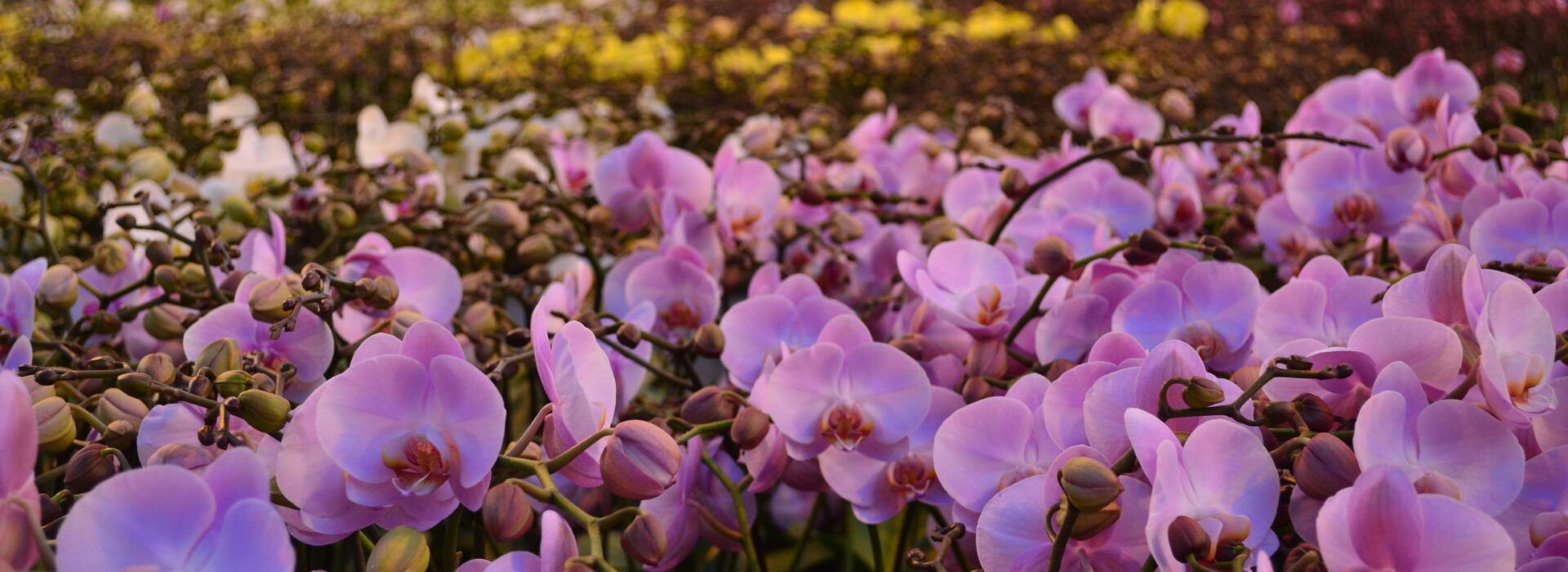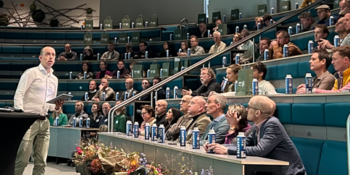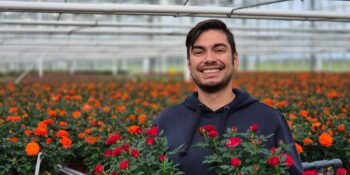When the Van der Maarel family’s nursery started to specialise in Phalaenopsis cultivation in 1999, twenty years after it was established, it also changed its name. Since 2006, Maarel Orchids has been producing more than six million plants per year, primarily for retail, on a site that now covers 9.3 hectares. Certification is important for the company, especially for external communication.
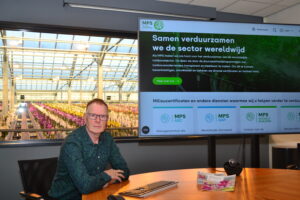
Alphons Alsemgeest
“We use certification to present ourselves to our customers,” says Alphons Alsemgeest, QHSE (quality, health, safety and environment) coordinator, who is also responsible for IT and energy. The company is MPS-A+, MPS-SQ and MPS-GAP certified and participates in MPS-ProductProof. They also hold the On the way to PlanetProof label. “That’s the only label aimed at the consumer, so we would like to see it get more publicity, especially in countries outside the Netherlands.”
Lower water, energy, gas and CO2 emissions
The nursery has plenty to proudly share with consumers. “We collect all the condensate from the air handling units and reuse it as irrigation water, which gives us a bigger water reserve, especially in the summer,” says assistant crop specialist Jeroen Wolkers.
The company has also already partly switched to LED lighting, with both hybrid and full LED, which saves a lot of energy. Additionally, light emission is reduced with new light-proof screens. “In the past, we used 6 MW per hour with HPS lights; now with LED it’s 4.5 MW per hour. So we have already saved 25%, but we’re on our way to a 40% reduction.”
Their CHPs generate electricity and therefore heat. But since this summer the nursery has been using geothermal heat, which will ultimately halve their gas usage. Thanks to the geothermal heat, the CHPs are switched on less often. CO2 is supplied from industry via the OCAP network.
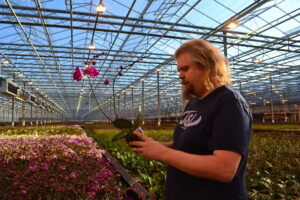
Jeroen Wolkers
Crop protection minimised
Growing organically is difficult because there are no effective biocontrols available for pests such as mealybug and Echinothrips, according to Wolkers. “But we only use five percent of the active substances we are allowed to use under the On the way to PlanetProof standard, which already exceeds the legal requirements. We achieve this by optimising the growing conditions so that we need to use less crop protection.”
An example of this optimisation is the substrate they use. “We have a fairly dense substrate. This means we can wait longer with watering without harming the plants. The larva of the Lyprauta mosquito (pot worms) thrive in damp conditions, but we avoid them because we can delay irrigation.”
Honest and transparent ornamental horticulture
Alsemgeest describes the collaboration with MPS as positive. “They asked us to test the new HortiFootprint Calculator. We are open to such innovations, and it’s great that MPS is also involved.”
However, they would like to see an MPS certificate that is also directed at consumers. “If we can inform them too, the ornamental horticulture sector will only become more honest and more transparent,” Alsemgeest says. “After all, we are a very progressive sector in many areas, and we would like to see more recognition for that from the government, for example by looking at the energy tax and the impact it has on us.”
